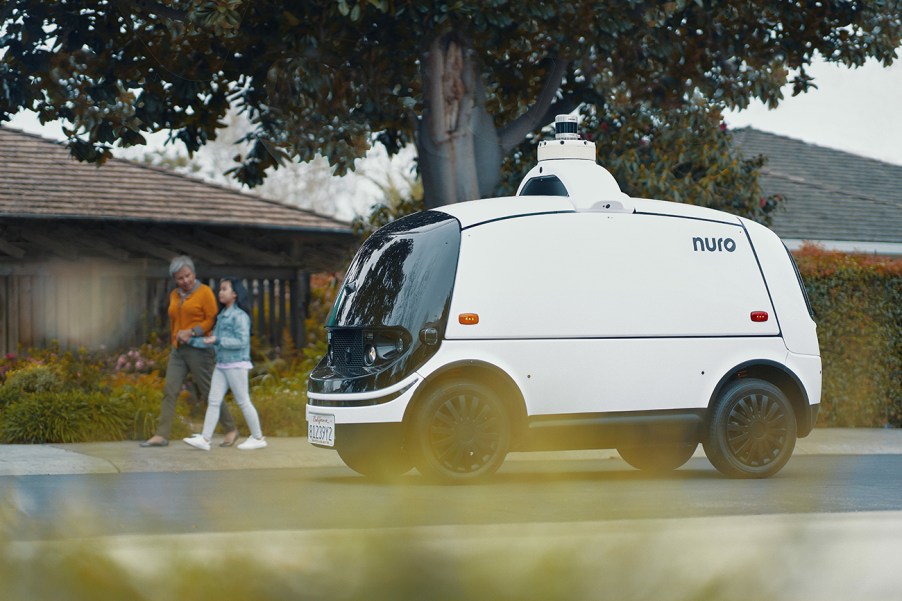
Autonomous Vehicle Delivery Company Nuro Raises $600 Million
The autonomous vehicle revolution brings much more with it than just being able to take a nap during your morning commute while the car does all the work. Self-driving vehicles come with the potential for many other possibilities. Driverless delivery vehicles are just one example of the potential of autonomous vehicles.
Autonomous delivery startup Nuro secures $600 million in funding

According to a recent Reuters report, Autonomous delivery startup Nuro raised $600 million in a recent funding round. The startup also brought on Google as an investor. The $600 million in funding raised Nuro’s valuation by $3.6 billion, giving the company a total valuation of $8.6 billion, according to a source that spoke with Reuters.
Woven Capital, which is a funding group owned by Toyota, was also among the investors. Nuro’s funding is another sign that autonomous vehicles will soon be commonplace in the American market. For another sign of the self-driving future, just look to Waymo, an autonomous vehicle ride-hailing service, which raised $2.5 billion in June 2021.
These funding rounds illustrate a race to commercialize self-driving autonomous vehicles that can do more than take the stress of commuting away from passengers. Autonomous vehicles do not need breaks, sleep, or hourly salaries, making them an attractive value proposition for making deliveries and transporting cargo. That is precisely the market that Nuro is attempting to reach.
What is a Nuro?

The Nuro R2 is a small autonomous vehicle with no pedals or steering wheel that is purpose-built to deliver things like small to medium packages, groceries, and even hot food like pizza. The Nuro R2 is one of the smallest commercial autonomous vehicles in the world and is “passengerless.”
Unlike the autonomous vehicles used by firms like Waymo, the Nuro R2 self-driving delivery vehicle is only large enough to deliver consumer goods. The Nuro R2 is also large enough to travel on public roads without sticking to bike lanes or the sidewalk.
The business model for Nuro is not to be a delivery service itself but to offer R2 self-driving delivery vehicles to retailers and other businesses to set up their own delivery program.
The Nuro R2 has been tested in major cities such as Houston, Phoenix, and Mountain View. The National Highway Traffic Safety Administration (NHTSA) permitted Nuro to test up to 5,000 R2 self-driving delivery vehicles on public roads for two years.
The commercialization of autonomous vehicles is the next ‘gold rush’

Autonomous vehicles are the future of transportation in all aspects, not just personal. Supply chains for various consumer goods will be forever changed when the main form of transportation relies less on the human element to control vehicles. That is why multiple companies are attempting to get ahead of the curve in personal and commercial transportation services.
Waymo has already made major inroads (no pun intended) to the commercialization of autonomous vehicles for personal transportation. The California DMV recently permitted the tech firm to charge for autonomous ride-hailing services in San Francisco.
Texas-based self-driving vehicle startup Aurora recently announced that it would simultaneously take on commercial and personal autonomous transportation. Aurora believes its two-pronged strategy will work by using the money it can make with commercial transportation to fund and expand the personal transportation division of its business.
With Nuro’s recent investment round, we have to wonder if some of the more established players in the autonomous vehicle market will jump into the passengerless self-driving delivery vehicle segment. Amazon, we’re looking in your direction.


